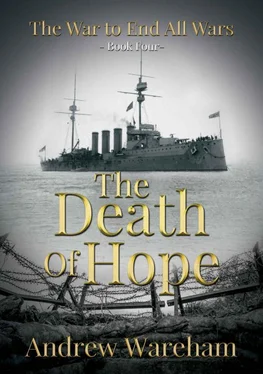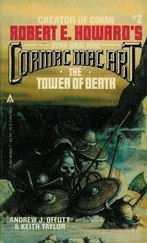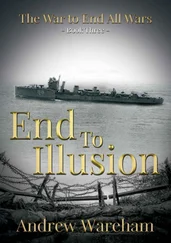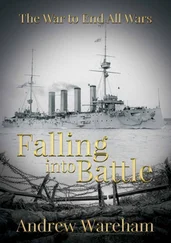“I am afraid it is not what they are going to get, Appleby. One hour a day on the drill square. Two hours morning and afternoon in the butts, three days a week. Tuesday and Thursday and Saturday, a full fifteen mile route march, with pack and rifle. Other than that, I will have every man taught the basics of dressing a wound – putting on a tourniquet and such. That is what they need. Officers to accompany the men at all times, of course. Subalterns should learn the rifle; they will carry one frequently. As soon as it can be arranged, the men will learn to use the Mills Bomb. Every platoon will have a Lewis and every man should be taught the basics of loading and firing and clearing a jam.”
“What about on the march, sir?”
“No horses to hand in France, Appleby. Officers must be able to keep up with the men.”
The other two smiled quietly, Moncur catching Richard’s eye for permission to speak.
“My men always marched the better for seeing me at head, Appleby.”
Barnard-Hope agreed.
“They won’t fall out if you don’t, Appleby. Leading from the front – something the Brigadier knows all about and we must copy.”
Appleby was not at all sure that he could march for as much as fifteen miles. He was rapidly persuaded that he had no choice.
There was a sigh of relief when Richard went off on leave. Then the officers read the orders for continued route marches he had left behind and discovered that Moncur, acting in his place, had every intention of enforcing them.
“Four more weeks unbroken, Moncur! I am almost tempted not to turn up at his wedding to show how displeased I am!”
Moncur was not certain that the Brigadier would either notice or care. He did strongly suggest that the officers of the three battalions would regard such an action as disloyal.
“It would hardly be possible to retain your place after that, Appleby. Effectively, the end of your military career, you know. You would probably end up in command of a stores depot somewhere, there to moulder away till the end of the war and be found surplus to requirements thereafter.”
Appleby was not certain that was so terrible a fate. He was substantive in his rank, would have the full pension to supplement his private income, might be quite comfortable. If, on the other hand, he remained, he would be part of the victory that was sure to come, might manage to pick up a decoration as well, could be even better set up after the war as a Chief Constable or Chairman of the Hospital Board in his county, picking up a modest salary and huge expenses.
“Only joking, Moncur! Could never do something so damned disloyal, you know!”
Moncur hoped not. His own feet were sore but that was no excuse for moaning.
“Still, Appleby, be a damned good feast tomorrow. Rubbing shoulders with all the nobs. I know my wife is much looking forward to the day.”
Appleby was unwed, wondered if Moncur was taking a dig at him.
Working up a new flotilla was hard labour for all involved. Seven destroyers and a light cruiser had to learn the new commander’s ways and change their own habits, often reluctantly.
The Navy demanded that the commanding officer was king – his word was law. Simon began to discover the reality and to remember that not all kings had been able to exercise the power that was in theory theirs. His knowledge of history was limited, Dartmouth teaching only the naval version which tended to start and end with Nelson, but he had a slight recollection of any number of mediaeval kings losing their heads in battles with their own people. He could not be toppled from his throne, unless the flotilla showed inefficient – should that ever be the case, Tyrwhitt would see him gone within the day. He could, however, find himself forced to compromise, to allow his captains more freedom than he wished to do things in their own favourite fashion.
He had been appointed young and relatively inexperienced, which his captains knew. He was convinced this meant he brought a fresh point of view to their work; they seemed to believe it meant he was in need of guidance. Three days in and he was debating which of them was to be awarded the noble order of the boot as a warning to the other six.
Simon found himself with seven captains beneath him, six lieutenants-in-command, the seventh a recently made lieutenant commander, second in command overall and in charge of his half-flotilla. Five of the six were new made, in their first command; just one of the lieutenants had three months of experience commanding a destroyer in the Dover Patrol, had been transferred across to Harwich to provide a stiffening for the flotilla.
Lieutenant Commander Griffin had cut his teeth in minesweepers – hard, disciplined, dangerous work, performed at low speed and normally close inshore. It was a task that demanded precise navigation and unbroken concentration, keeping a flotilla manned almost entirely by reservists to an exact routine, leaving no awkward corners unswept, missing no part of a minefield. An officer who could excel in minesweepers was a man of outstanding ability, fit for a senior role, preferably as Commander in a battleship where his painstaking virtues were immediately applicable.
Simon had to turn Griffin into a destroyerman, achieving this trick overnight so that he could be an instant success in his half of the flotilla. Less than immediate competence could not be accepted – he was to be responsible for his own boat and three others.
“High speed work and snap decisions, Griffin. You rarely have ten seconds thinking time – you must give your orders with no delay at all. No possibility of muddling though, either. Get it wrong and you are likely to be dead. More importantly, so will your ships be!”
Griffin could accept that his own life was of secondary importance. That was the Navy way.
“Typically, Griffin, you will be up against full flotillas of German destroyers. They are faster than us and more heavily armed. After eighteen months of war in the Channel and southern North Sea, they are experienced and skilful. You must never allow them to reach as far as the Barrage. The small ships there are capable of catching and sinking submarines. That is their job. They cannot live against destroyers. The Barrage protects the cross-Channel traffic, as you know. If it is broken then we face disaster.”
Griffin was aware of the need to protect the Channel.
“We shall be patrolling at a distance from the Barrage, out into the North Sea as far as the Broad Fourteens and across to the Belgian coast. Our job will be to pick up anything coming down from the north, in addition to watching for sorties from the Belgian ports.”
“Yes, sir. I was aware of that. I have spent some time considering the problem and have come up with a patrol line that I think will serve us well.”
“No, Griffin. The last thing we need is a patrol line. We must never be predictable. Submarines will watch us and will use their wirelesses at night to tell the destroyers where we are so that they can either avoid us or lay up in ambush. They would very soon pick up any pattern in our behaviour. We cannot even get into a habit of say, three days out and two in Harwich – we would be observed.”
Griffin could not imagine that they were simply to venture out on random sorties, wandering the North Sea hopefully.
“Almost. We shall vary our patrols, in part according to information given us from the Commodore’s people, to a great extent depending on our own observations. Obviously, we shall be under the orders of the Patrol as a whole and may often be sent out with specific orders. When we are on our own, we must use our initiative.”
Simon smiled and then proceeded to make clear that the initiative in question was to be his alone.
Читать дальше












